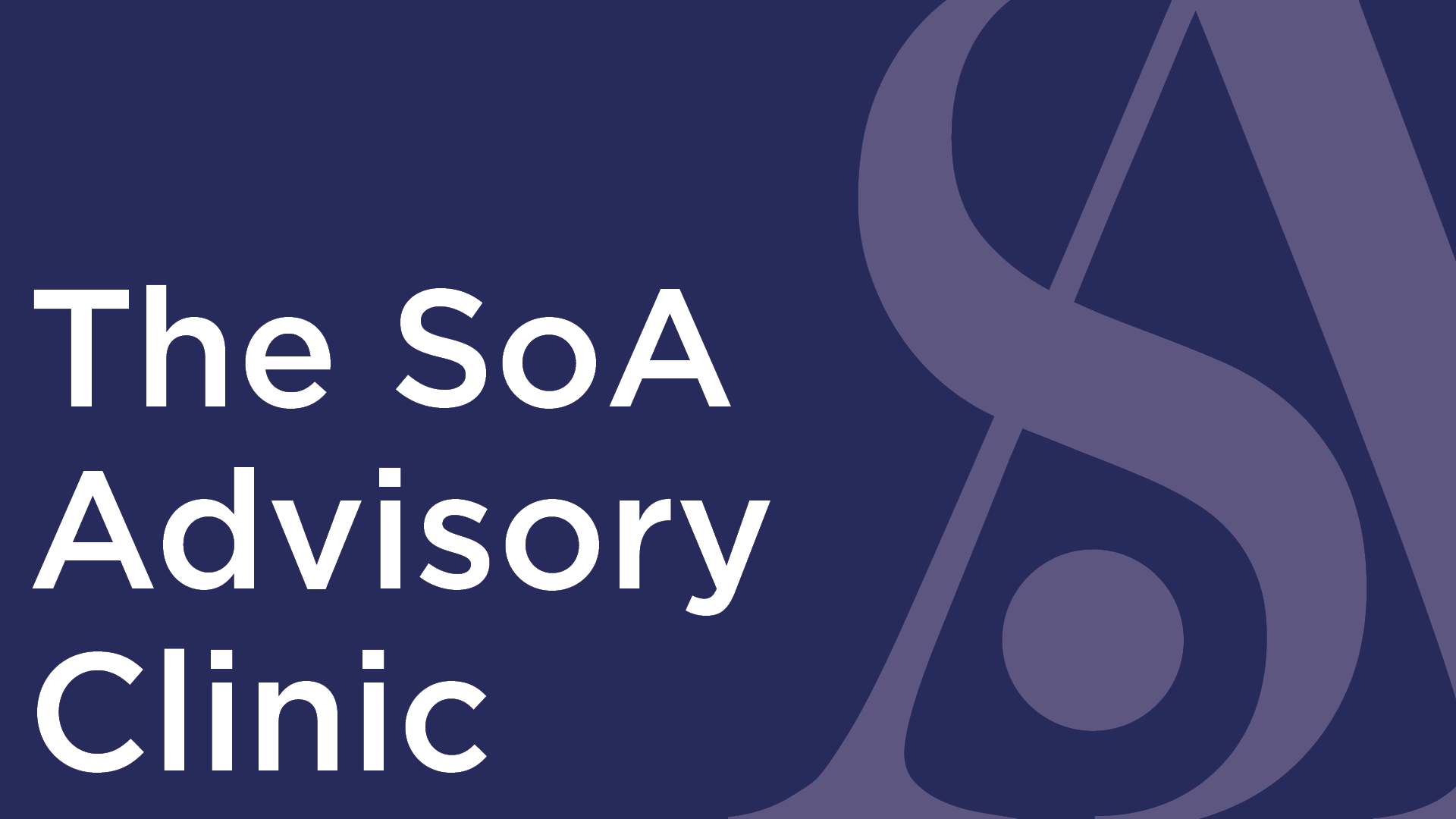What’s the first step in preparing for what happens after you die?
Think about what happens before that. All your life, in fact, you should be thinking about how you can be contacted if you die or become ill or just stop writing. Someone should always be able to reach you (or your heirs) if they want to exploit your copyrights or give you money.
Make sure that your publisher and agent have a next-of-kin name for you, with up-to-date addresses, plus a back-up – ideally your executor: and it sounds obvious but maybe someone younger than you? Do keep details up to date, even if it seems ridiculous because you’re not expecting any money. Things do happen years later. When a book that was way ahead of its time reaches its time, you want people to be able to contact you, to request permissions or simply pay you.
Keeping up to date with ALCS is wise, because they are often approached by people seeking to make contact. Publishers and agents are holding masses of money for authors they can’t trace. We are working on an industry protocol called Pay It Out to help with this, but it isn’t there yet. Making sure you are traceable is as important as what you do with your money in your will. It is worth thinking about creating lasting powers of attorney too, at an early stage. You don’t have to be old or have a diagnosis of dementia to create powers of attorney.
What about my pension?
If you can afford it, think about putting money aside for a pension. We recently published a guide to pensions, available from our resources page.
How else should I prepare?
Try and leave your family as few headaches as you can. Creating a folder called something like ‘this is the only important folder’ is a good idea, with the details of every bank account and so on. As for passwords, there are dedicated password-keeper programs. But why don’t you also give them to the person who needs them now?
Make a list of all the people who should be notified on your death, including ALCS and PLR. The SoA is often contacted by surviving family who have no idea how to deal with literary estates – and we can help.
What needs to be in my will?
One key point is to remember that your estate will have physical assets but also intellectual property – your copyrights. Most solicitors are not particularly expert in authors’ wills, and they tend to overcomplicate the process. A guide to wills is available from our resources page.
Who should the executors be?
It’s generally a good idea to make a couple of key beneficiaries the executors. They can decide what professional help they need to get things done. Making an agent an executor adds nothing – they are already someone the executors can turn to for advice. But do mention the agent in the will, along with the SoA, as experts who can be approached for advice.
Do I need a literary executor?
Almost certainly not. A literary executor’s job is the same as any executor’s – it is to get in the money, tie up the estate, sort out the tax and then give it to the beneficiary. But if you are thinking of creating an advisor, someone who can help make literary and publishing decisions, then absolutely do name someone – and call them an advisor.
We strongly advise – and we say it again and again – not to appoint separate literary executors. If you do then you have to take out two grants of probate (which is what allows the executors to deal with the assets); the section of the estate that will have the money coming into it will be the literary estate, and the part that needs to pay the bills will be the general estate. It’s complicated and unnecessary.
Do I need a trust?
Remember that your copyrights last for 70 years after your death. If your work is likely to continue selling then it is useful for it to be controlled by only one or two people. If you share your copyrights between for example four beneficiaries by the end of copyright, 70 years after death, it’s not impossible to have literally hundreds of people jointly owning the copyright, and some will have gone bankrupt or abroad. That’s a nightmare for publishers trying to get signatures or decisions.
A literary trust is one way of dealing with this issue. Alternatively, hold the copyrights in a company, give them to a charity or appoint only one beneficiary. If you have a complicated literary estate or have specific stipulations about exploiting your work then consider getting proper advice on setting up a trust. One of the first things I did as a trainee solicitor was work on some paint royalties where a particular colour was still generating income many years on. Trying to trace beneficiaries and pay out a few pounds to each was very time-intensive. It would have made more sense for the copyrights to be held by one person or in one trust with the money to go to the beneficiaries.
What should I do with my unpublished work?
Executors have the toughest time knowing what to do with unpublished manuscripts. They have a duty to maximise the value of the estate, and if you haven’t made it very clear that, for example, you don’t want to publish something in a particular way, they may have difficulties in stopping it. If your view is that your executors should get rid of anything half written, think about doing that while you’re still alive, or make your wishes very clear. Terry Pratchett put all his unfinished novels on one disc and made his wishes clear – and they ran it over with a steamroller, accordingly. Think also about your wishes in the event that people want to amend your work after you die.
What about my other papers?
Letting others see your papers might feel like going out of the house in pyjamas. Or you might be happy for students and others to pore over how you work. But remember that everything multiplies, so go through your filing cabinet, and your e-filing cabinet equally. Don’t keep your 2006 complaint to Tesco because you got a mouldy courgette! Imagine the poor people that are going to have to go through all that. Looking for a good displacement activity? Deleting and filing emails is a good one.
Should I leave my papers to a library or university archive?
It’s up to you – but speak to the library first about what they want. And remember that if they do accept then they will want your literary works to be open to students and others, so think about how much you are happy for others to see. How much you got paid for that deal? Your diaries? The correspondence around that fractious divorce? (Think of the Plath-Hughes papers…) Remember that your ‘literary works’ are not just the things you prepared for publication, they are every letter you ever wrote, plus your receipts and everything else. And do you really want the library to have every draft? If there’s anything you don’t want in the public domain, destroy it or tell the library clearly that you don’t want it used.
What happens to my online presence?
Nobody can access your social media accounts unless they know your passwords, and it’s incredibly hard to get them from the online companies involved. Different companies have different policies, so check their support pages for their approach and to find out how you should prepare.
What role do agents play? What rights do they have?
Mostly the agent will have rights to continue receiving commission. For that reason, it’s a good idea – if they’re good – for them to continue administering the literary estate. It is harder to keep it going when there are no new books to pin sales onto, and when there isn’t someone there for visits and talks, but good creative agents do this really well. They make anniversaries, they get new introductions by contemporary authors, they update. The risk is that money gets left in agents’ hands. Make it clear who can give them a receipt and who can give them instructions – who they can talk to when making decisions. And make sure your agent knows where all your manuscripts are.
What do I need to know about inheritance tax?
Tax planning is beyond the scope of this article, but members have access to our online guides, and they can always speak to us directly. And I’d always recommend getting independent financial advice. An author’s estate can be a very valuable asset and it might still be generating income 70 years after your death – so it is worth talking to the SoA as to whether that might tip you over the inheritance tax thresholds.
Be aware that the valuations you get on death might not use the same basis as a valuation before a sale – one might be seeking to maximise value, the other to minimise it, within proper legal bounds. If your estate is held by a limited company then the inheritance and capital gains tax issues can be complex, because what will be bequeathed on your death is your shares in the company in which the copyrights are held. For people with a big estate these are technical questions and there is no one rule of thumb.
How can the SoA help executors, beneficiaries and other people looking after authors’ estates?
An executor can join as an Estate Member in exactly the same way as any other member. In fact the subscriptions of deceased members are automatically transferred to an author’s estate. We can review contracts for executors, just as we do for living authors. We are knowledgeable about trusts and trustees, and the issues that arise there. We’re also happy to talk things over with non-expert executors – heirs for example – helping them deal with estates in a way that’s respectful of the author’s wishes while maximising income.
The SoA has a highly experienced estates team which manages the estates of around 60 authors. Lisa Dowdeswell is Head of Literary Estates and is particularly strong on selling rights, including film rights. Sarah Burton is also a Senior Contracts Adviser, as is Sarah Baxter, who also manages our Contingency Fund.
Bequests
Many authors have donated part (or even all) of their estates to an SoA fund, making a vast difference to living authors. These include bequests to the Authors’ Foundation, helping authors buy time to write, to the Contingency Fund helping authors in need, or to Authors’ Awards and Advancement, which funds a wide range of special projects.
For instance, a recent generous bequest from Drusilla Harvey will be used in part for access, funding authors to travel to events, or if they need a carer to come with them, or to cover childcare. Some of it will also be used to fund the prize money for our new ADCI Literary Prize for authors with disabilities and chronic illnesses.
Donations can be named or anonymous. To find out more, please get in touch to discuss ways to make sure your donation can have the greatest impact.
Further reading
Visit our resources page for our guides Your Copyrights and Papers After Death, a Quick Guide to Pensions, the HW Fisher Tax Guide for Authors, and Pros and Cons of Forming a Limited Company.





